What to know about sealing concrete driveways
Does concrete need to be sealed? This is something that causes a lot of doubts among homeowners. Many people choose concrete for their driveways because it requires low maintenance. It can make one think that this material does not need sealing. It is true but only to some extent.
A cement driveway can serve for quite a long time without any special care; however, some cracks can appear and spoil the view of your yard. It makes some people go for asphalt and other building materials. For you to maintain your investment, in this article we will tell you all the necessary information on sealing concrete driveways: pros and cons are included.
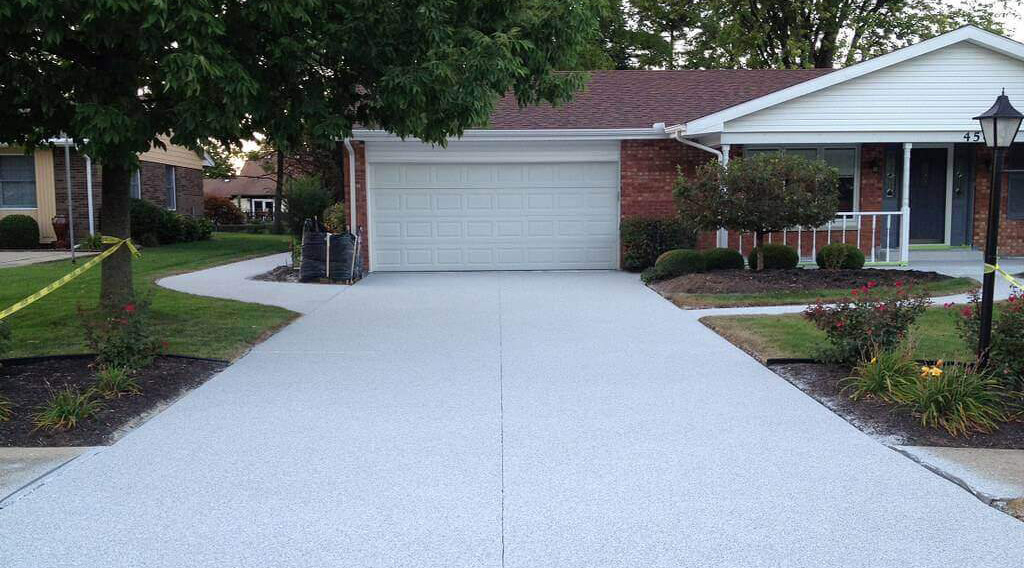
Why You Should Use a Sealer on Your Driveway
There are a number of reasons for sealing a cement drive but the main one is to extend its lifespan, keep it look fresh, and prevent erosion. Once it begins to decay it can be difficult to stop it. That is why you’d better take care of this aspect in advance.
So is sealing concrete necessary? After reading the information below you can decide for yourself. Here are the advantages of sealing a cement drive:
- it raises the value of your property;
- increases the durability of the surface;
- it is cheap compared to the cost of maintenance for other materials;
- it is not too time-consuming to do: a handy DIYer can seal an ordinary residential driveway over a weekend. You can hire a contractor to do it as well;
- improves curb appeal and makes a drive look fresh even if it has been a few years since you have concreted it;
- protects the surface from oily and greasy spots and other types of stains left by tires, pets, leaves, dirt, and so on;
- prevents the growth of mold;
- reduces the bad effects of the sun and cold climate that cause the surface to chip, crack and shift. For example, many homeowners in the southern states of the US find it necessary to seal their interior concrete surfaces exactly because of drastic variation of weather patterns throughout the year;
- prevents discoloration (if the concrete is painted);
- gives it a gloss if necessary;
- it will save you money on repairing a drive in the future;
- sealing can provide better traction with wet.
Types of Sealers
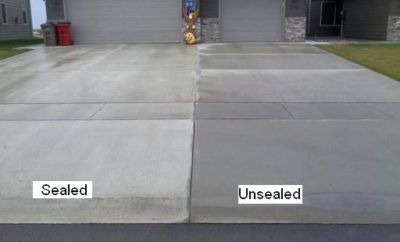
Before buying a sealer it is extremely important to find out what kinds of them exist and how their characteristics differ from each other. There are three basic sorts of concrete sealers: polyaspartic, penetrating, acrylic, epoxy, polyurethane.
Penetrating
This type of sealer is particularly suitable for driveways as it does not leave any gloss and thus prevents the surface from becoming slippery. The feature of such a sealer is that concrete absorbs it. It helps prevent liquid from penetrating the surface. Penetrating sealers are perfect for terrain with sudden temperature changes: they can withstand both high heat and severe frost. They also provide protection from UV rays, stains, erosion, damages connected with the use of de-icing salt.
Send us a request
And get a unique offer
Acrylic
Acrylic sealers are used most frequently with a cement surface. They resist UV rays, moisture; protect concrete from anti-frost salt, chemicals. Apart from that, such sealers are inexpensive and can be applied fast and without much effort. However, they have some drawbacks: the coat of an acrylic sealer is thin compared to other types of the product. That is why it has to be renovated more often. Also, the coat can get yellow as time passes. Acrylic sealers are perfect for colored and pattern concrete. They can be water- and solvent-based.
Epoxy
Epoxy sealers also form a thick coverage and are good for waterproofing concrete driveways. However, they are vulnerable to UV rays and therefore used more often on indoor concrete flooring.
Polyurethane (solvent- and water-based)
Unlike acrylic sealers, polyurethane ones form a thick coverage and do not cause it to take on a yellow shade. They provide powerful protection from any negative impact of external factors. Polyurethane sealers have to be reapplied every 5 years – they are very lasting and because of it are often used on busy roads. There is one con of this product: close interaction with it is harmful to human health.
Polyaspartic
Polyaspartic sealers can be applied at any temperature and need only 30 min to dry. They withstand extreme temperatures and provide the best protection from staining and sun rays. Polyaspartic sealers are innovative and can surprise anyone with their powerful protective characteristics.
Gloss Levels
As you have already found out, there are diverse types of sealers and all of them have different gloss levels. They can leave a no-gloss, matt, semi-gloss, gloss, or maximum gloss finish. The gloss level that a sealer has is usually rated from 1 to 100 units.
For a driveway, a matt surface is preferable as it provides good traction with wet and ice (prevents slipperiness). However, if you still would like to have a shiny driveway, you can apply a non-slip extra topcoat.
Let’s look at what gloss levels have various types of sealers:
- penetrating: 0;
- water-based: 50-80 units (mat or semi-gloss coat);
- solvent-based: 80-100 units (very shiny coat).
How to Apply a Sealer
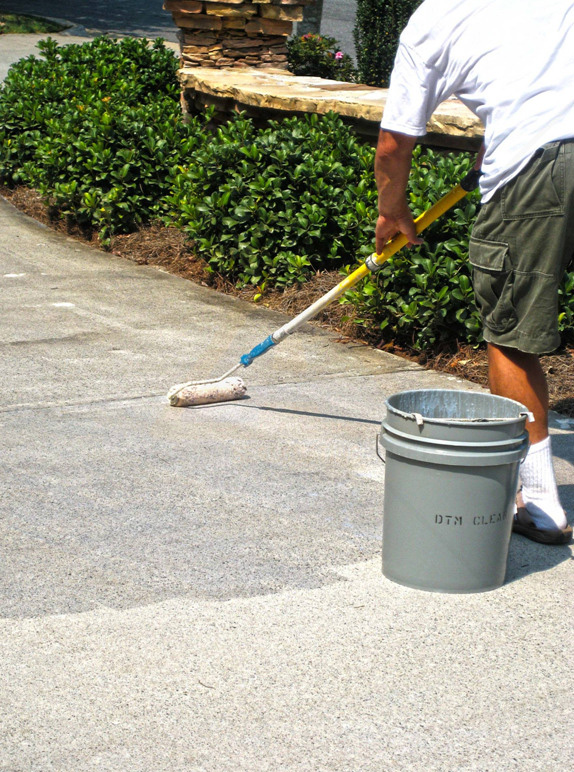
Preparatory measures
If you have just concreted your drive, you have to wait for about a month before sealing it. Then you have to clean it using a detergent if needed. Afterward you have to let the driveway dry for 24 hours. Rain can add 24 hours more to this time.
You have to prepare not only for driving but also yourself. Your task is to reduce to a minimum the contact of a sealer with your eyes and skin. Put on protective gloves and clothes that will cover all your body, wear glasses. Read the instructions on the sealer you have bought. Pay attention to any special precautionary measures that must be taken and recommended temperature for sealing.
If you have a very big driveway, it would be prudent to hire a professional contractor to do all the work.
Equipment
The choice of equipment depends on the sealer you have chosen. Basically, water-based ones are applied with a brush or a roller whereas oil-based ones are usually sprayed.
Applying
You have to cover the drive with a sealer completely. It is recommended to apply it evenly in 2-3 thin layers letting each one dry. A dry surface does not feel gluey when you touch it. Applying the product in one thick layer is a bad idea – puddles will appear and the coverage will be uneven. If the instructions on the product you use say different, follow them.
Drying
It will take from 2 to 5 hours for the top of the driveway to dry. Everything depends on the weather – if it is hot and humidity is high, the sealer will take longer to dry. But do not rush to use a drive. For twenty-four hours it has to stay intact and be protected from cars, people and water.
Maintenance
A drive will need cleaning once in several months. You can use a detergent and water for it. If the sealer has been erased on some areas, it is a good idea to apply a sealant pointwise.
Resealing
Generally, a driveway needs resealing every one-tree years. Nevertheless, everything is individual and depends on the type of sealer and weather patterns in your region.
Conclusion
You may have already realized that sealing concrete yourself is not that difficult but do not neglect the rules mentioned in this article and written on a sealant’s package. Remember that a responsible approach is a key to a good result.
Get a quote for free!
Complete the form below, and we'll call you to
discuss your exact project requirements








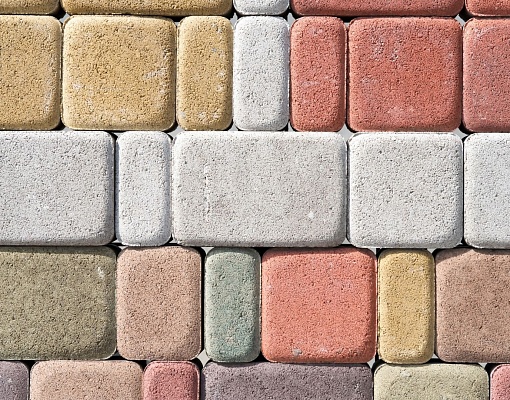

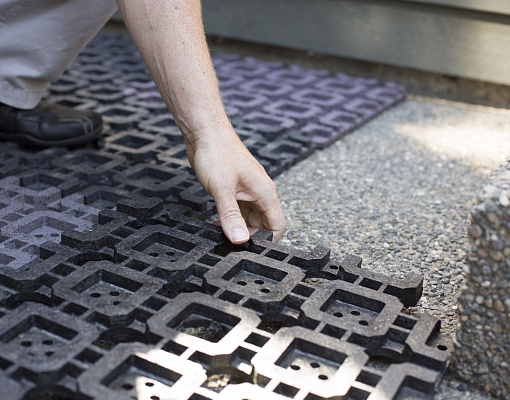

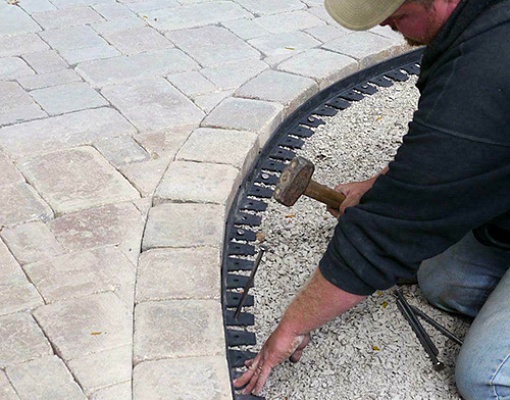
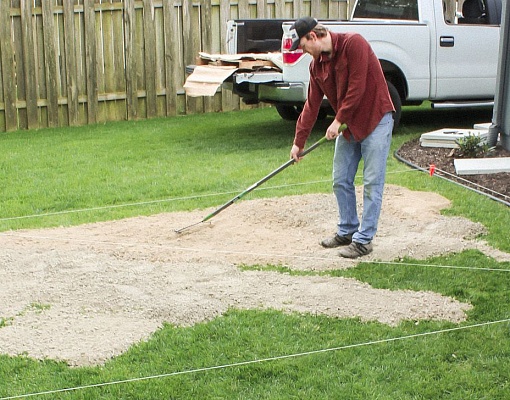
Leave a comment